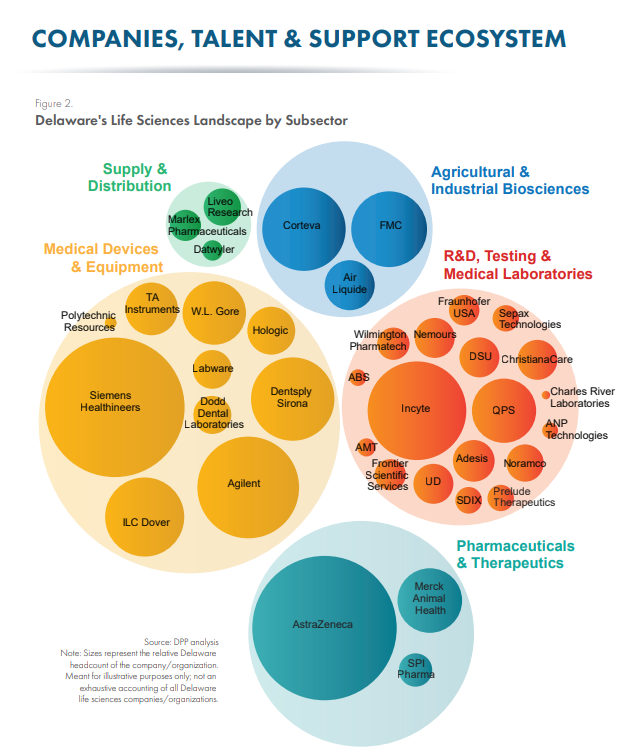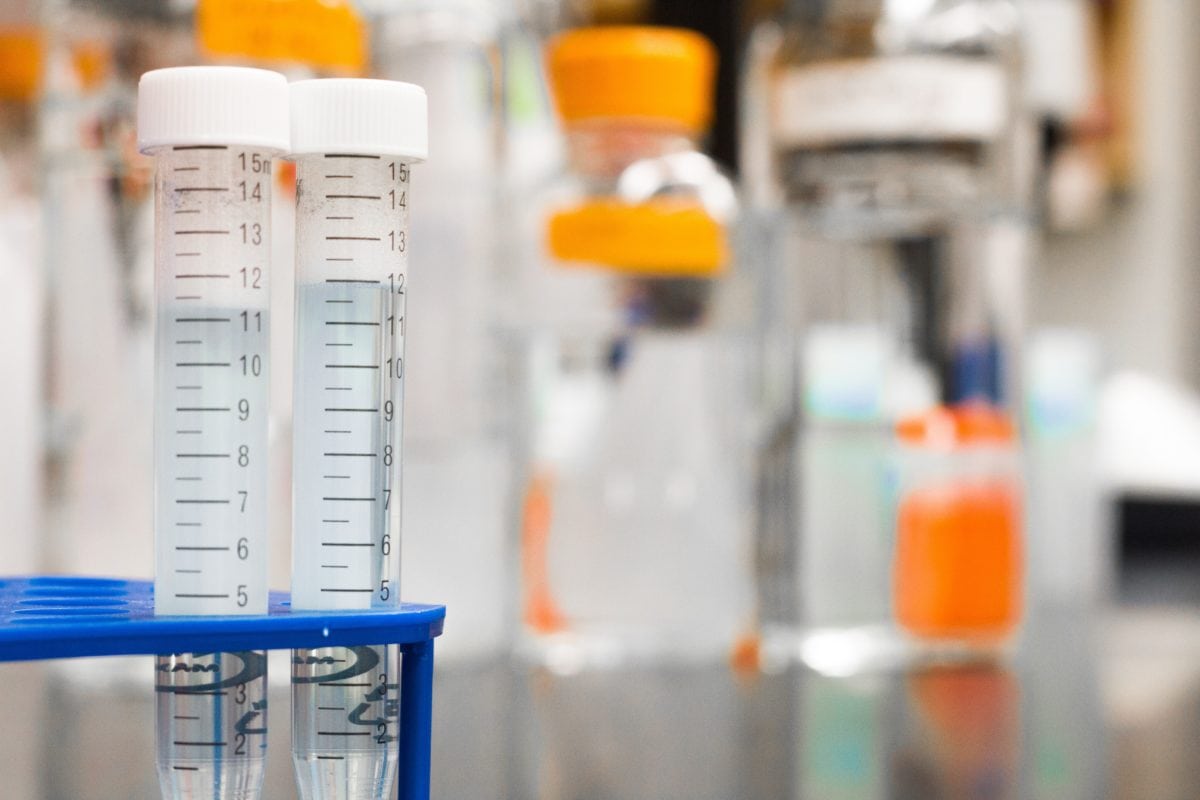The life sciences industry is rapidly growing in Delaware.
That’s according to the first comprehensive report on the industry by DelawareBio and the Delaware Prosperity Partnership.
First — what is the life sciences industry, exactly? The report defines it according to five sub-sectors:
- Pharmaceuticals and therapeutics
- R&D, testing and medical labs
- Agricultural and industrial biosciences
- Medical devices and equipment
- Supply and distribution
Since the report uses industry employment data rather than occupational employment data, it includes not only scientists, but employees in all types of roles, including sales and marketing, administration, IT and facilities.
The big takeaway: Approximately 11,000 people are employed in Delaware’s life sciences sector, which directly generates at least $2 billion in GDP annually. And that’s 2.5% of total state employment and GDP, respectively.
Read the reportThe largest life sciences employment sub-sector in Delaware is R&D, testing and medical labs, with 34% of the jobs. Then it’s medical devices and equipment (29%), pharmaceuticals and therapeutics (18%), agricultural and industrial biosciences (10%) and supply and distribution (9%).

(Courtesy image)
The report found that about 18% of job openings required an advanced degree, 66% required a bachelor’s degree and 16% were available to potential employees with less than a bachelor’s degree, and noted that expanded manufacturing facilities will bring additional opportunities for trained non-degree employees.
The life science employers with the largest number of Delaware employees are Astra Zeneca and Siemens Healthineers (which recently announced that it is expanding in the state); other major life sciences employers in Delaware include Incyte, Agilent, Corteva and FMC.

(Courtesy image)
The composition of life sciences companies in Delaware is dominated by four groups: academic partnerships, startups, healthcare-based institutions and Delaware-based companies. Large companies that are headquartered in Delaware, such a DuPont, are less dominant. The report notes that the industry’s composition transitioned to a broader and more diverse mix of established, startup and growth companies across segments around the 1990s and 2000s, when companies like Incyte and Agilent entered the the local ecosystem.
New Castle County also has the highest concentration of life scientists in the region. Since 2010, the number of degrees in life sciences disciplines has expanded by 64% in Delaware, with 921 degrees awarded in 2019. The majority of these scientists graduate from the University of Delaware, with many also coming out of Delaware State University, Delaware Technical and Community College and Wilmington University.

(Courtesy image)
Regarding access to capital, life science startups receive support from the State of Delaware, including via EDGE Grants, which provide up to $100,000 for early-stage STEM startups. However, the report suggests that focusing EDGE Grants on companies that are ready to start scaling in preparation for commercialization may be more effective.
It all points to more growth benefitting the region, and state.
“The COVID-19 pandemic has vividly demonstrated the enormous importance of the work biomedical researchers devote their lives to advancing,” said Delaware Bio President Michael Fleming, in a statement. “With growth across every facet of our sector — from private businesses of every size to new degree and training programs and increased R&D investment and expanding manufacturing capacity — the Delaware bioscience sector has never been stronger, and this report provides a compelling roadmap for the life sciences’ role as a central driver of the state’s success while transforming the lives of the patients it serves.”
Before you go...
Please consider supporting Technical.ly to keep our independent journalism strong. Unlike most business-focused media outlets, we don’t have a paywall. Instead, we count on your personal and organizational support.
3 ways to support our work:- Contribute to the Journalism Fund. Charitable giving ensures our information remains free and accessible for residents to discover workforce programs and entrepreneurship pathways. This includes philanthropic grants and individual tax-deductible donations from readers like you.
- Use our Preferred Partners. Our directory of vetted providers offers high-quality recommendations for services our readers need, and each referral supports our journalism.
- Use our services. If you need entrepreneurs and tech leaders to buy your services, are seeking technologists to hire or want more professionals to know about your ecosystem, Technical.ly has the biggest and most engaged audience in the mid-Atlantic. We help companies tell their stories and answer big questions to meet and serve our community.
Join our growing Slack community
Join 5,000 tech professionals and entrepreneurs in our community Slack today!

The person charged in the UnitedHealthcare CEO shooting had a ton of tech connections

From rejection to innovation: How I built a tool to beat AI hiring algorithms at their own game

Where are the country’s most vibrant tech and startup communities?



